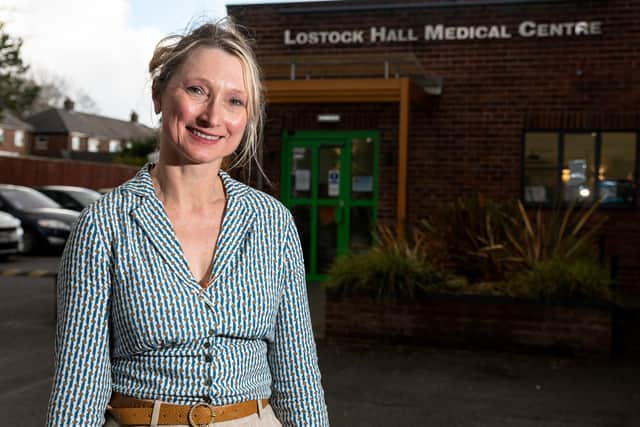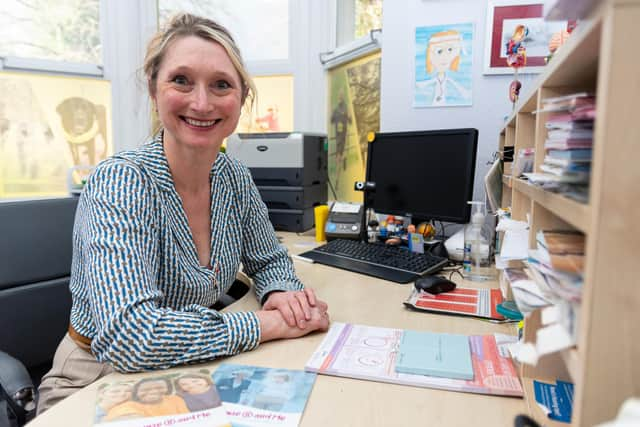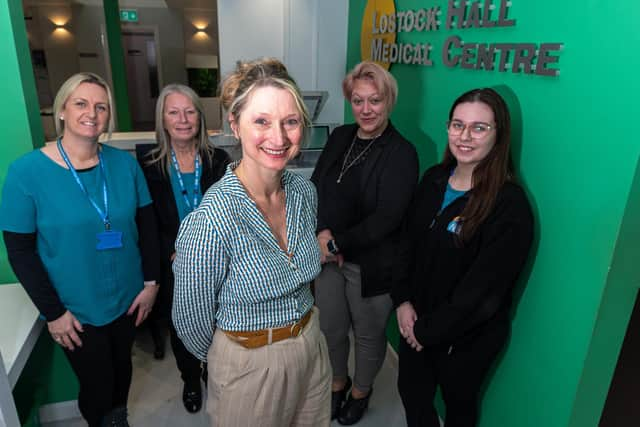‘It’s important to know what’s happening’: Lancashire menopause expert on why we need a women’s healthcare revolution
and live on Freeview channel 276
But the headlines were not as positive as one would have hoped. Instead, menopause started trending on Twitter as a result of Lancashire Police revealing that the then-missing Nicola Bulley had "significant issues with alcohol which were brought on by her ongoing struggles with the menopause" before she disappeared in late January 27.
Widely criticised by the public, MPs, and campaigners alike, it’s hard to see how Lancashire Police’s move helped their ongoing investigation at the time. But, beyond the case itself, the revelation also unveiled a more widespread lack of fundamental knowledge and understanding when it comes to menopause and perimenopause.
Enter the expert


Advertisement
Hide AdAdvertisement
Hide AdDr Ewa Craven is the lead GP and owner of Lostock Hall Medical Centre. Having qualified in 1998, she completed her initial training in Poland before continuing her medical career in Manchester, Blackburn, and Lancaster. A British Menopause Society-qualified Menopause Specialist and Trainer, she is one of Lancashire’s foremost experts on the subject.
“Once a woman is around the age of 40, most commonly, hormonal changes start happening, which is called perimenopause,” says Dr Craven. “Those changes eventually lead to menopause, which is classed as when a woman stops having periods for a year. Everything after that is postmenopause where hormone levels are low but a bit more stable.”
Defined as the body’s transition to menopause by producing less oestrogen, perimenopause usually occurs in the mid-40s but can start up to a decade earlier or later. Typically, it lasts around four or five years but can go on as long as 10 and represents a dramatic hormonal shift.
Consequently, the symptoms are varied, incorporating less predictable menstrual cycles; hot flushes, night sweats, and poor sleep; mood swings, anxiety, depression, and brain fog; heart palpitations, headaches, migraines, muscle aches, and joint pain; changed body shape, weight gain, and dry and itchy skin; reduced sex drive, vaginal dryness, and discomfort during sex; and recurrent urinary tract infections (UTIs).


Advertisement
Hide AdAdvertisement
Hide Ad“Perimenopause leading up to menopause is quite a difficult time because hormone levels - oestrogen, progesterone, and testosterone - fluctuate quite a lot,” says Dr Craven. “They cause havoc for the body and things can get very difficult, with the main effects being difficulty sleeping, mood regulation, anxiety, and even depression.
“There is also a big group of symptoms called vasomotor symptoms relating to the regulation of the constriction of blood vessels, which can cause one of the most commonly-recognised symptoms: hot flushes and night sweats,” she adds. “But not every woman will experience them straight away and some never do.
“Another group of symptoms relate to skin and hair disturbances - itchy skin and dry and brittle hair; I’ve had women present to me after their hairdresser noticed a difference in their hair, for example - while another relates to a loss of libido and general drive and motivation to do things which a person may have previously enjoyed.
“Then there’s also joint and muscle pains and weight gain, which can lead to a lack of confidence and a situation where a person stops liking herself as much as she did. A lot of women describe it as not feeling themselves or as if they’ve lost their spark.”


A change is needed
Advertisement
Hide AdAdvertisement
Hide AdFor countless women, perimenopause and menopause are hugely significant periods. A survey of 2,000 women commissioned by the House of Commons women and equalities select committee inquiry into menopause at work last year found 75% reported problems with memory or concentration and 69% reported feeling anxious or depressed.
But poor symptom awareness holds women back. Some presenting with typical symptoms are sent away by GPs with prescriptions for antidepressants, while others are dismissed as hysterical. All the while, the impact of menopause continues to wreak havoc: a survey of 4,000 women commissioned for a recent Channel 4 documentary found 10% of women quit their jobs because of menopause symptoms while 14% reduced their hours.
Alleviating the symptoms


What can be done? Hormone replacement therapy can help regulate oestrogen levels and antidepressants can help with anxiety and depression, but other ways to improve matters include cardiovascular and weight-based exercise, spending time outdoors, refraining from smoking or drinking, having a regular sleep routine, and talking about issues openly.
“Exercise makes us feel better by releasing endorphins and keeping us healthy,” explains Dr Craven, who recommends yoga and Pilates to promote bone strength. “Nutrition also plays a very big part, as do relaxation and mindfulness: there’s evidence that cognitive behavioural therapy and psychological intervention helps for some menopausal symptoms.
Advertisement
Hide AdAdvertisement
Hide Ad“Menopause symptom trackers can help women recognise what’s happening to them,” adds Dr Craven, who is keen to promote more general awareness of perimenopausal symptoms so that women are more aware of how their bodies are changing. “Whatever interventions you make during perimenopause are an investment in your future health.
“Being healthier also carries so many other general health benefits related to things like a lower risk of cancer and cardiovascular disease,” she adds. “For anybody going through menopause, please don’t feel alone and like the help isn’t there. Speak to your doctor and hopefully most women will have their health needs addressed.”
The wider impact
“Menopause doesn’t just affect the person who lives with the symptoms, it affects everyone around them,” says Dr Craven. “Menopause affects 49% of us directly and the other 51% indirectly, so managing it properly is a population health issue and something which should be done on a much larger scale.”


As a result, Dr Craven wants more Women’s Health Hubs similar to what Liverpool offers: community-based support for women having issues with menopause, nutrition, and other facets of health which don’t require surgery-based intervention, including provision for women who are otherwise reluctant to see their GP due to cultural or language barriers.
Advertisement
Hide AdAdvertisement
Hide Ad“Menopause has a massive effect on not only the person, but everybody around them as well,” says Dr Craven. “It’s still hugely underappreciated in general in society and, while there’s been a recognition of the fact that it’s not just hot flushes, we need more conversation about menopause in the context of things like employment, family functioning, and health.
“It needs to be appreciated more how big a change it is for the body,” she adds. “Some women don’t realise it's menopause, especially when it catches you unawares in your late-30s, because they don’t immediately recognise some symptoms like heavy bleeding, which a lot of women experience before their periods disappear.
“That’s the problem with self-referral to the GP,” continues Dr Craven, who is set to speak at a conference at Sahara Women Centre in Preston soon. “Women don’t make that link and, even if they do, most GPs operate 10-minute consultations, which isn’t enough time given how many systems menopause affects.
That’s why, at Lostock Hall Medical Centre, we include menopause advice in our health and wellbeing check programme. We also have the whole team on board from the nurses to the reception staff, who are all amazing. That makes addressing menopause easier because more people are on-hand to talk, which means a lot.
Solutions
Advertisement
Hide AdAdvertisement
Hide Ad“We need more Women’s Health Hubs to give people access to information about menopause and long-lasting contraception delivered in communities without long hospital waits,” says Dr Craven simply. “That’d be a great development in terms of provision for women looking for somewhere to turn.
“There should also be more early awareness of menopause, perhaps when talk starts at school about puberty, contraception, and sexual health,” she adds. “Then, moving forward, people can anticipate symptoms a little better. It’s important that you know what’s happening to you.”